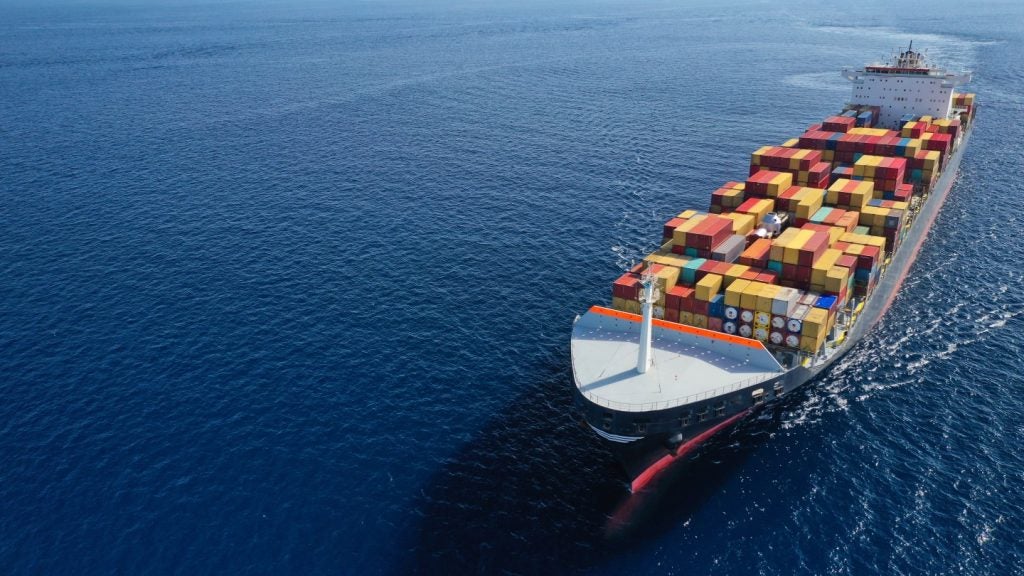
Hong Kong’s new tax incentives for ship leasing are part of an initiative to re-energise its maritime industry, after the container port – once the world’s busiest – slipped to 8th place on declining volumes last year. Katherine Muir reports
Hong Kong recently introduced new tax breaks for ship leasing as part of its plans to grow its global market share of the industry along the ‘Maritime Silk Road’.
The new tax break states that qualifying profits of ship lessors carrying out operating lease and finance lease activities, such as sub-leasing and sale and leaseback arrangement, will see a tax rate of 0%.
Meanwhile, the tax rate on the qualifying profits of ship leasing management activities for ship lessors for associated and non-associated companies will be 0% and 8.25% respectively. This new tax regime will be applicable to revenue received either on or after 1 April 2020.
Ship leasing: Hong Kong
The move reflects Hong Kong’s aims to position itself as a global centre for ship financing and leasing, building on its reputation as a major shipping hub.
Hong Kong has long been an attractive regional base for the shipping industry, due to its status as a global financial centre, its world-class port, dynamic workforce and competitive tax regime, as well as its proximity to Asia’s major markets.
How well do you really know your competitors?
Access the most comprehensive Company Profiles on the market, powered by GlobalData. Save hours of research. Gain competitive edge.

Thank you!
Your download email will arrive shortly
Not ready to buy yet? Download a free sample
We are confident about the unique quality of our Company Profiles. However, we want you to make the most beneficial decision for your business, so we offer a free sample that you can download by submitting the below form
By GlobalDataAs a result of this, a thriving maritime sector operates in the territory, from maritime financiers, insurers, lawyers and arbitration services to shipbrokers, insurance companies and cargo operators.
Tim Huxley, the founder of Mandarin Shipping, described the local industry conditions to the South China Morning Post as: “The full range of services to build, operate, register and insure a ship are all within walking distance here in Hong Kong.”
There have been major changes affecting the port over last decade, however, with big shifts in the financing of shipping since the financial crisis of 2008, when the industry’s traditional financiers – the European banks – largely withdrew from the market.
This has led to less conventional sources of funding stepping in including American private equity funds and Chinese and Japanese leasing firms, according to the Hong Kong Maritime Hub website, which profiles the territory’s maritime sector, listing Chinese companies such as ICBC, Bank of China, Bank of Communications, China Construction Bank, and Minsheng Financial Leasing as having moved into ship leasing, and now dominate the shipping market in East Asia.
This change has coincided with the territory’s maritime services industry being challenged by other regional players, such as Singapore, which has led to its slip down the international rankings of global shipping.
The change is reported to be partly due to a shift away from manufacturing towards financial services in the territory.
However, as part of the Chinese government’s multibillion-dollar Belt and Road initiatives (the ‘road’ refers to sea routes), including the Greater Bay Area project, Hong Kong’s maritime sector is now assuming more importance again.
In 2017, the government introduced a concessionary tax regime to attract more aircraft leasing companies to set up in Hong Kong, reducing the profits tax of qualifying aircraft lessors and aircraft leasing managers.
This move fuelled the maritime sector to ask for a similar tax break, with the Hong Kong Financial Services Development Council calling for tax concessions such as a reduced rate of 8.25% “where relevant businesses activities such as maritime and ship leasing management and maritime and shipping-related supporting services activities are carried out in Hong Kong”.
Formidable challenge
The following year Hong Kong’s chief executive, Carrie Lam, told the Global Maritime Forum Summit that: “Maintaining the competitiveness of our maritime sector remains a formidable challenge”.
And, a week later the chief executive’s policy address signalled tax relief for the leasing industry, saying: “The maritime industry is a major driving force and bedrock for supporting the development of Hong Kong’s trade and logistics industries. … We will continue to serve as the best springboard for Mainland maritime companies seeking to ‘go global,’ and to provide facilitation for international maritime organisations to set up a presence in Hong Kong and tap the Mainland market.
“We will implement tax relief proposals to promote marine insurance in Hong Kong, and have started exploring the feasibility of introducing tax measures to foster ship leasing business”.
The government’s discussion paper on the proposal to introduce the new tax regime noted that the global shipping fleet has largely grown at a rate of 3% per annum between 1980 and 2018, and is expected to continue growing, with the Financial Services Development Council estimating in May 2018 that: “the capital expenditure for new-building vessels was about US$80-100bn a year”.
The discussion paper also pointed out that the OECD’s tightening of international taxation rules to deal with tax abuses, particularly anti-base erosion and profit shifting (“BEPS“) measures, had driven ship leasing companies based in low-tax countries to look for opportunities to rebase their operations, giving Hong Kong an opportunity to attract new business to the territory.
Qualifying lessors
The resulting legislation states: “Qualifying ship lessors and leasing managers will still be taxed such that issues relating to BEPS and related anti-tax avoidance will not be an issue and interest received under a finance lease will also be subject to tax,” as cited in a recent paper exploring the issue by the law firm the Maples Group.
The group also looked at who qualifies for the concessions writing: “To qualify as a ship lessor, the entity must not only be established in Hong Kong but also maintain at least two full-time employees with a minimum operating expenditure of approximately US$1m for the relevant tax year.
“Likewise, to qualify as a ship leasing manager, the Hong Kong-based entity must maintain at least one full-time employee in the Territory and have at least US$130,000 in operating costs. In both cases, the conditions must also be ‘adequate’ in the opinion of the Inland Revenue department itself.”
Benjamin Wong, head of maritime cluster of Invest Hong Kong, Government of the Hong Kong Special Administrative Region, told Seatrade Maritime News in August: “For ship leasing, the [Hong Kong] government is actually planning or forecasting that in 10 years’ time we should be able to capture about 12% of the world’s market – something we are quite confident about.
“In terms of the gravitational pull from shipping and ship leasing, they are much stronger than aviation.
“Hong Kong also has a strong financial market to support leasing activities and we are confident that we can be as successful, if not more successful, than our aircraft leasing”.
Bill Guo, executive director of shipping at ICBC Leasing, told Seatrade Maritime News: “With the new tax scheme, we can and could do more in Hong Kong, including setting up subsidiary companies.
“It’s a good opportunity for mainland Chinese companies to access more talented people in Hong Kong, as the majority of Chinese leasing companies are now based in Beijing, Shanghai and Shenzhen.”
Rosita Lau, a partner at Ince & Co, told the news service about the “retrospective effect” of the tax regime. “If profits earned from that day [1 January 2020] had been in compliance, then you can enjoy the new tax concessions,” she said.
The government tax break, the Inland Revenue (Amendment) (Ship Leasing Tax Concessions) Ordinance 2020, came into effect on 19 June 2020, installing concessionary tax regimes for qualifying ship lessors and ship leasing managers.
Katherine Muir is a freelance journalist
Ship leasing and the risk of reclassification in US proceedings
Sources
HK Legislative Council Panel on Economic Development Proposed Tax RegimeTo Promote Ship Leasing Business in Hong Kong
https://www.legco.gov.hk/yr19-20/english/panels/edev/papers/edev20191126cb4-130-5-e.pdf
HK Financial Services Development Council Maritime Leasing Paper
https://www.ics.org.uk/media/461124/hkg maritime leasing paper (eng)_1 may 2018.pdf
Carrie Lam’s Chief Exec 2018 Policy Paper
https://hongkongfp.com/2018/10/10/full-hong-kong-chief-executive-carrie-lams-2018-policy-address/
Carrie Lam’s speech 2018 at Global Maritime Forum
https://www.info.gov.hk/gia/general/201810/03/P2018100300522.htm
World Shipping council top 5o ports
http://www.worldshipping.org/about-the-industry/global-trade/top-50-world-container-ports
HK port in 8th place
https://www.mardep.gov.hk/en/publication/pdf/portstat_2_y_b5.pdf
Greatest port
https://www.freightwaves.com/news/port-of-hong-kong-sinking-in-the-ranks
HK Maritime Hub changing structure of shipping industry
http://www.hongkongmaritimehub.com/the-changing-structure-of-the-shipping-industry/
SCMP article on how shipping lost out to Singapore (with quote from Tim Huxley)
SCMP article 2018 on the issue
Maples Analysis
Mayer Brown (similar to Maples analysis)
Bloomberg article with graphic
(listing HK ports attributes, Carrie Lam’s speech and giving overview)
Lloyd’s List article







